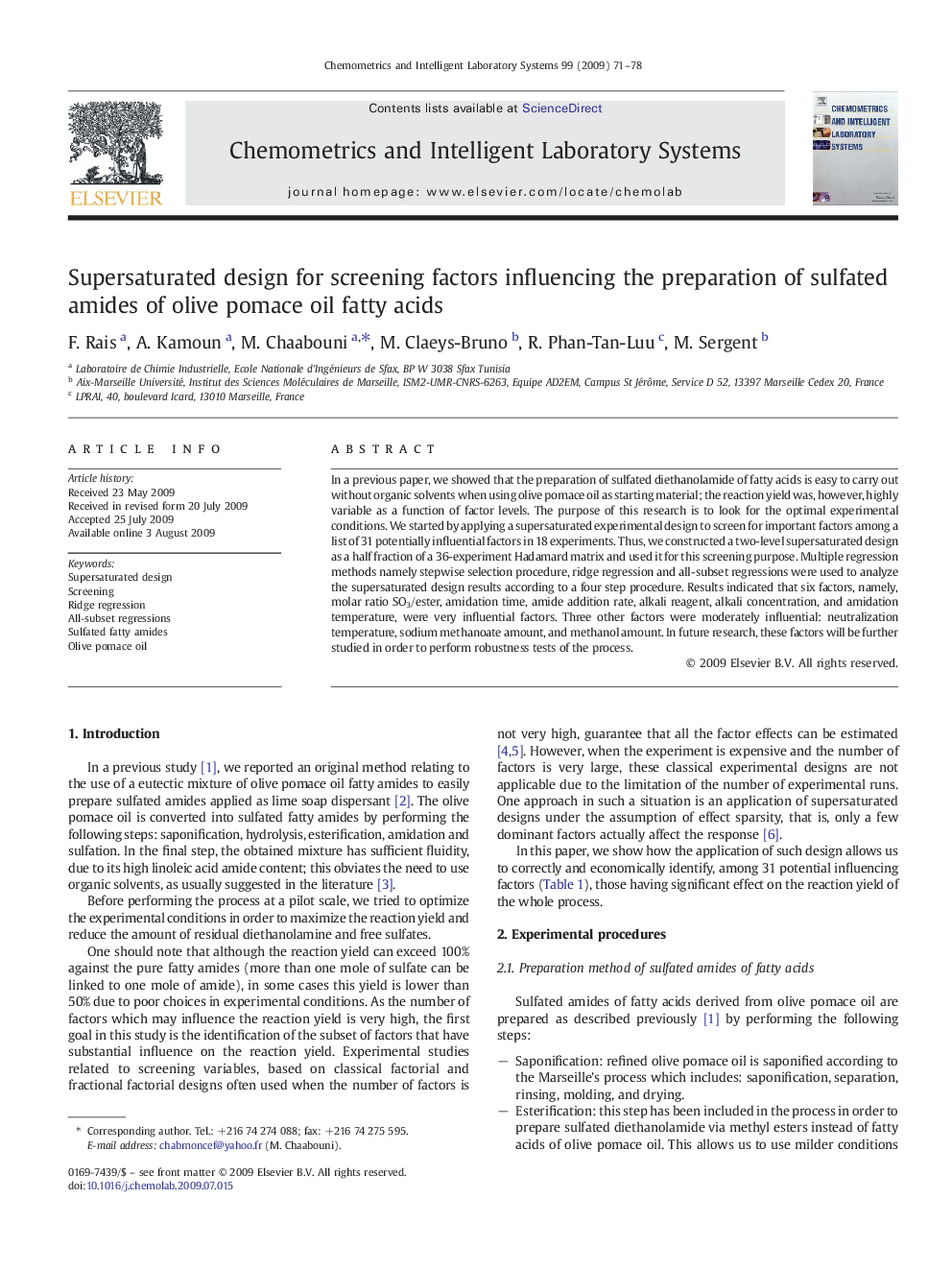| Article ID | Journal | Published Year | Pages | File Type |
|---|---|---|---|---|
| 1181119 | Chemometrics and Intelligent Laboratory Systems | 2009 | 8 Pages |
In a previous paper, we showed that the preparation of sulfated diethanolamide of fatty acids is easy to carry out without organic solvents when using olive pomace oil as starting material; the reaction yield was, however, highly variable as a function of factor levels. The purpose of this research is to look for the optimal experimental conditions. We started by applying a supersaturated experimental design to screen for important factors among a list of 31 potentially influential factors in 18 experiments. Thus, we constructed a two-level supersaturated design as a half fraction of a 36-experiment Hadamard matrix and used it for this screening purpose. Multiple regression methods namely stepwise selection procedure, ridge regression and all-subset regressions were used to analyze the supersaturated design results according to a four step procedure. Results indicated that six factors, namely, molar ratio SO3/ester, amidation time, amide addition rate, alkali reagent, alkali concentration, and amidation temperature, were very influential factors. Three other factors were moderately influential: neutralization temperature, sodium methanoate amount, and methanol amount. In future research, these factors will be further studied in order to perform robustness tests of the process.
